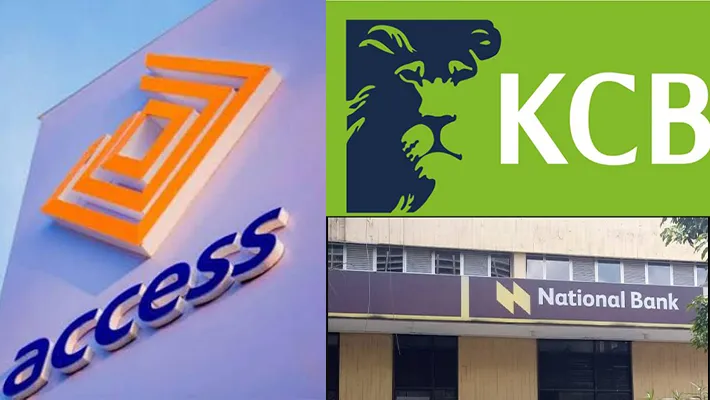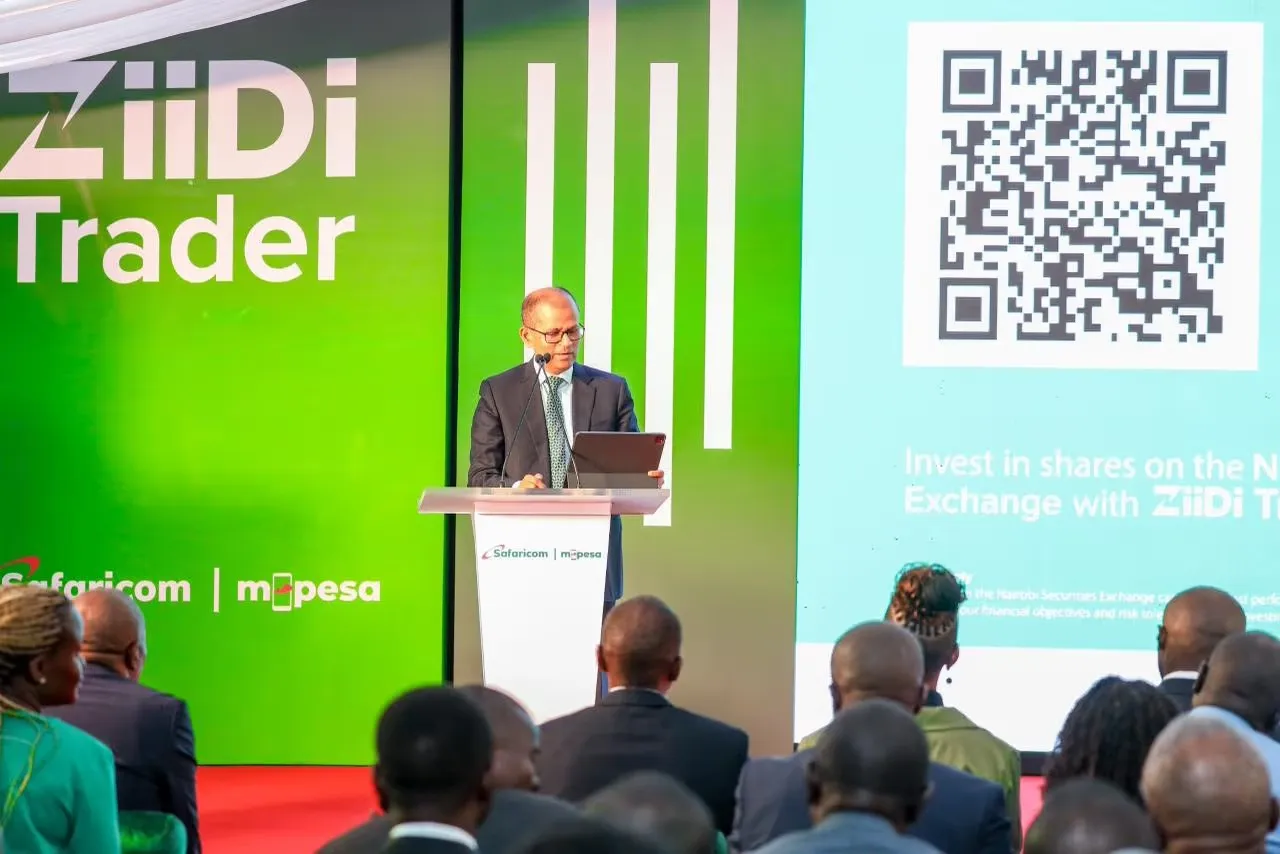In a move that underscores the evolving dynamics of Africa’s banking sector, KCB Group PLC has secured critical regulatory approvals from both the Central Bank of Kenya (CBK) and the National Treasury. This pivotal clearance paves the way for the sale of National Bank of Kenya Limited (NBK) to Nigeria’s Access Bank PLC—a deal that has been in the works since March 2024 and is expected to reshape regional banking synergies and fuel further expansion into the East African market.
A Strategic Transaction with Regional Implications
The recent regulatory nods represent not just a milestone for KCB Group but also a strategic step towards deepening financial integration within Africa. The transaction has been meticulously structured to meet all legal and procedural benchmarks. On 4 April 2025, the CBK granted its approval for the deal under Section 13(4) of the Banking Act, a decision that was subsequently echoed by the National Treasury and Economic Planning when the Cabinet Secretary approved the sale on 10 April 2025 under Section 9 of the same Act.
This clearance confirms that the sale of NBK to Access Bank satisfies the stringent local and regional standards that govern major financial transactions in Kenya, highlighting the confidence that regulatory authorities have in the robustness of the deal. With these approvals secured, the final phase of acquisition and the accompanying asset and liability transfers will be executed as stipulated in the agreed terms between KCB Group and Access Bank.
Regulatory Hurdles Cleared: Navigating Kenya’s Banking Act
The regulatory framework governing banking transactions in Kenya is notably rigorous, designed to protect consumers, maintain financial stability, and foster transparency within the financial sector. KCB Group’s recent achievement in obtaining approvals from the CBK and the National Treasury under Sections 13(4) and 9 of the Banking Act, respectively, is a testament to the transparency and prudence with which this transaction has been handled.
The approvals signal that the transaction meets the necessary compliance benchmarks and sets a precedent for future cross-border banking mergers and acquisitions. In an era where financial institutions are increasingly looking to integrate and expand beyond their domestic markets, such regulatory clearances serve as essential affirmations of trust and financial discipline.
Voices from the Top: Insights from KCB Group Leadership
Commenting on the deal, KCB Group CEO Paul Russo remarked, “The CBK approval marks a significant milestone towards the completion of this transaction. Both Access Bank and KCB Group continue to engage to ensure a successful completion. In the meantime, NBK remains a subsidiary of KCB Group, and there are no changes to our current structures or day-to-day operations.” Russo’s statement not only underscores the importance of regulatory compliance but also reassures customers and stakeholders that operational continuity will be maintained throughout the transition period.
This leadership communication is vital in an industry where regulatory changes can often lead to market volatility. By reaffirming its commitment to uninterrupted service delivery, KCB Group is signaling a stable outlook and a customer-centric approach—an essential strategy in maintaining trust during periods of significant structural change.
The Transaction in Context: KCB, Access Bank, and the Dynamics of Regional Integration
The unfolding transaction is emblematic of a broader trend sweeping the continent—where financial institutions are increasingly looking to bolster their regional presence through strategic acquisitions and partnerships. Access Bank, originating from Nigeria, has rapidly emerged as one of Africa’s most aggressive bank expansionists, with an appetite for markets beyond its home country. The acquisition of NBK is a critical move in Access Bank’s regional strategy, providing a foothold in Kenya’s vibrant economy while deepening its integration into East Africa’s financial ecosystem.
For KCB Group, the sale of NBK represents an opportunity to re-focus its resources on its core strengths and further refine its strategic priorities. KCB has been a dominant player in the East African banking landscape, with a history steeped in innovation, customer service, and a deep understanding of local markets. By divesting NBK, KCB Group can channel its capital into ventures that align more closely with its long-term vision of growth and technological innovation in the financial sector.
Moreover, the transfer of certain assets and liabilities of NBK to KCB Bank Kenya Limited—also sanctioned by both the CBK and the National Treasury—ensures that the transition will be smooth and that the financial ecosystem remains robust despite the ownership change. This careful orchestration of asset transfers not only mitigates potential market disruptions but also reinforces a commitment to financial stability that is essential in times of transformation.
Strengthening Regional Banking Synergies
The strategic rationale behind the sale extends beyond individual corporate interests; it is part of a wider effort to foster regional integration and streamline banking operations across Africa. By aligning its operations with Access Bank, NBK is poised to benefit from Access Bank’s expansive network, cutting-edge technology solutions, and significant capital resources. This expanded network is expected to facilitate broader access to advanced banking products and services, particularly benefiting underbanked regions within East Africa.
Access Bank has been at the forefront of promoting financial inclusion across Nigeria and other African markets through innovative digital banking platforms, mobile money solutions, and customer-focused service models. Its acquisition of NBK could mean that Kenyan customers are soon to experience enhanced digital banking features, improved customer support, and a suite of services tailored to meet the evolving needs of modern consumers.
Furthermore, the transaction is anticipated to boost regional trade and investment opportunities. With improved access to capital and a wider network of financial services, businesses in Kenya and the broader East African region may find it easier to secure the funding needed for expansion, innovation, and international trade. In turn, this could foster job creation, enhance productivity, and contribute significantly to overall economic growth.
The Human Side of Transformation: How Stakeholders Stand to Benefit
Beyond financial metrics and regulatory details, transactions of this nature have profound implications for everyday people—customers, employees, and local communities. KCB Group has made it clear that service delivery will remain seamless throughout the transition period, an assurance that has been warmly received by its diverse customer base. For many account holders, business owners, and everyday Kenyans who rely on the stability of their banking institution, this continuity is critical.
Employees across both institutions can look forward to a period of strategic collaboration. While restructuring often brings about uncertainty, the planned merger aims to create new opportunities for professional development and career advancement. Both KCB Group and Access Bank have long histories of nurturing local talent and investing in community programs. As the companies blend their operations, there will likely be an increased emphasis on employee training, leadership development, and skill enhancement—ensuring that the workforce is well-equipped for the future of digital banking.
Communities that have benefited from NBK’s local projects—ranging from educational initiatives to community health programs—can also expect continuity and potential expansion of these services. With Access Bank’s broader resources at its disposal, there is a heightened potential for scaling up community outreach and social responsibility initiatives, thereby fostering a more inclusive economic environment.
Market Implications and Investor Perspectives
The regulatory green light for the sale of NBK to Access Bank has elicited strong reactions from investors and financial analysts. Market participants have hailed the transaction as a forward-thinking move that will likely catalyse further consolidation in the African banking sector. Given the current global economic climate, where cross-border investments and inter-regional cooperation are becoming increasingly common, this deal positions both KCB Group and Access Bank as leaders in a new era of pan-African banking.
Investors are particularly encouraged by the strategic foresight demonstrated by KCB Group in navigating the complexities of the regulatory environment and executing a transaction of this scale. The robust due diligence process, combined with the clear regulatory endorsements, has bolstered confidence among shareholders and market watchers. Moreover, as Access Bank consolidates its position in East Africa, it may unlock new revenue streams and cross-border synergies that could drive long-term value creation for investors.
Analysts also note that such strategic moves are essential for banks looking to diversify their risk profiles amid a rapidly changing global financial landscape. With technological innovations, digital banking, and evolving customer expectations at the forefront, traditional banking models are being reimagined. The sale of NBK is viewed as an adaptive strategy—a move designed to streamline operations, focus on core competencies, and prepare for a future where financial services are increasingly interconnected across borders.
Lessons from Comparable Regional Transactions
This transaction is not occurring in isolation. Recent similar moves in the region have demonstrated the value of cross-border banking synergies. For instance, previous mergers and acquisitions within the African financial sector have led to enhanced technological capabilities, broader geographic reach, and a more resilient financial network. These deals have often served as catalysts for broader structural reforms, driving innovation and fostering a more competitive market environment.
KCB Group’s decision to divest NBK mirrors global trends where banks are strategically realigning their portfolios. By refining their asset bases, institutions are better positioned to invest in emerging technologies such as blockchain, AI-driven analytics, and next-generation mobile banking solutions. The strategic divestiture therefore not only addresses immediate regulatory requirements but also aligns with a broader vision of digital transformation—a vision increasingly essential in a post-pandemic financial landscape.
Looking Ahead: What This Means for East African Banking
As the final stages of the transaction draw nearer, stakeholders across the banking industry are keenly observing the implications for East Africa’s financial landscape. The deal between KCB Group and Access Bank is poised to stimulate further consolidation, strategic collaborations, and technological innovations in the region. In the coming months, the seamless integration of NBK into Access Bank’s expansive network is expected to yield numerous benefits, including:
- Enhanced Customer Services: With Access Bank’s investment in digital platforms and innovative service delivery models, customers can look forward to improved banking experiences characterized by increased efficiency, security, and accessibility.
- Expanded Financial Inclusion: As banks leverage cross-border synergies, there will be greater outreach to previously underserved populations. Expanded digital services and improved branch networks can play a crucial role in including more Kenyans in the formal banking sector.
- Boosted Economic Growth: Access to robust financial services is a catalyst for entrepreneurship and business expansion. With stronger financial infrastructure, local businesses and startups can obtain better financing options, driving job creation and economic resilience.
- Increased Regional Trade: As financial institutions streamline their operations across borders, there will be greater facilitation of trade and investment flows. This can lead to more stable markets, improved credit availability, and a surge in cross-border commercial activities.
Conclusion: A New Dawn for African Banking
The regulatory approvals granted to KCB Group for the sale of National Bank of Kenya to Access Bank represent a transformative moment in the continent’s financial evolution. This transaction is more than a routine regulatory clearance—it is a strategic initiative that underscores the importance of cooperation, innovation, and stability in modern banking. As Access Bank leverages this acquisition to expand its footprint in East Africa, it sets the stage for a new era of regional integration and financial empowerment.
KCB Group’s commitment to service continuity and operational excellence throughout the transition period assures customers, employees, and investors alike that the quality of banking services will not be compromised. Instead, this deal promises to create a more dynamic and competitive financial landscape—one that embraces innovation, fosters economic growth, and ultimately serves as a robust foundation for Africa’s future.
In summary, the sale of NBK to Access Bank, backed by meticulous regulatory approval and strong leadership, illustrates a forward-thinking strategy that is expected to yield long-term benefits for all stakeholders. As African banks continue to evolve in response to technological advancements and global economic shifts, such strategic transactions will play a vital role in shaping the next chapter of financial innovation and integration on the continent.
As East Africa stands on the cusp of this exciting transformation, industry observers and market participants remain optimistic about the opportunities that lie ahead. This historic transaction is not just a corporate milestone; it is a powerful signal that the future of banking in Africa is bright, interconnected, and ready to meet the challenges of tomorrow with resilience, innovation, and a human touch.
Ready to take your career to the next level? Join our dynamic courses: ACCA, HESI A2, ATI TEAS 7 , HESI EXIT , NCLEX – RN and NCLEX – PN, Financial Literacy!🌟 Dive into a world of opportunities and empower yourself for success. Explore more at Serrari Ed and start your exciting journey today! ✨
photo source: Google
By: Montel Kamau
Serrari Financial Analyst
16th April, 2025
Article, Financial and News Disclaimer
The Value of a Financial Advisor
While this article offers valuable insights, it is essential to recognize that personal finance can be highly complex and unique to each individual. A financial advisor provides professional expertise and personalized guidance to help you make well-informed decisions tailored to your specific circumstances and goals.
Beyond offering knowledge, a financial advisor serves as a trusted partner to help you stay disciplined, avoid common pitfalls, and remain focused on your long-term objectives. Their perspective and experience can complement your own efforts, enhancing your financial well-being and ensuring a more confident approach to managing your finances.
Disclaimer: This article is for informational purposes only and does not constitute financial advice. Readers are encouraged to consult a licensed financial advisor to obtain guidance specific to their financial situation.
Article and News Disclaimer
The information provided on www.serrarigroup.com is for general informational purposes only. While we strive to keep the information up to date and accurate, we make no representations or warranties of any kind, express or implied, about the completeness, accuracy, reliability, suitability, or availability with respect to the website or the information, products, services, or related graphics contained on the website for any purpose. Any reliance you place on such information is therefore strictly at your own risk.
www.serrarigroup.com is not responsible for any errors or omissions, or for the results obtained from the use of this information. All information on the website is provided on an as-is basis, with no guarantee of completeness, accuracy, timeliness, or of the results obtained from the use of this information, and without warranty of any kind, express or implied, including but not limited to warranties of performance, merchantability, and fitness for a particular purpose.
In no event will www.serrarigroup.com be liable to you or anyone else for any decision made or action taken in reliance on the information provided on the website or for any consequential, special, or similar damages, even if advised of the possibility of such damages.
The articles, news, and information presented on www.serrarigroup.com reflect the opinions of the respective authors and contributors and do not necessarily represent the views of the website or its management. Any views or opinions expressed are solely those of the individual authors and do not represent the website's views or opinions as a whole.
The content on www.serrarigroup.com may include links to external websites, which are provided for convenience and informational purposes only. We have no control over the nature, content, and availability of those sites. The inclusion of any links does not necessarily imply a recommendation or endorsement of the views expressed within them.
Every effort is made to keep the website up and running smoothly. However, www.serrarigroup.com takes no responsibility for, and will not be liable for, the website being temporarily unavailable due to technical issues beyond our control.
Please note that laws, regulations, and information can change rapidly, and we advise you to conduct further research and seek professional advice when necessary.
By using www.serrarigroup.com, you agree to this disclaimer and its terms. If you do not agree with this disclaimer, please do not use the website.
www.serrarigroup.com, reserves the right to update, modify, or remove any part of this disclaimer without prior notice. It is your responsibility to review this disclaimer periodically for changes.
Serrari Group 2025
















